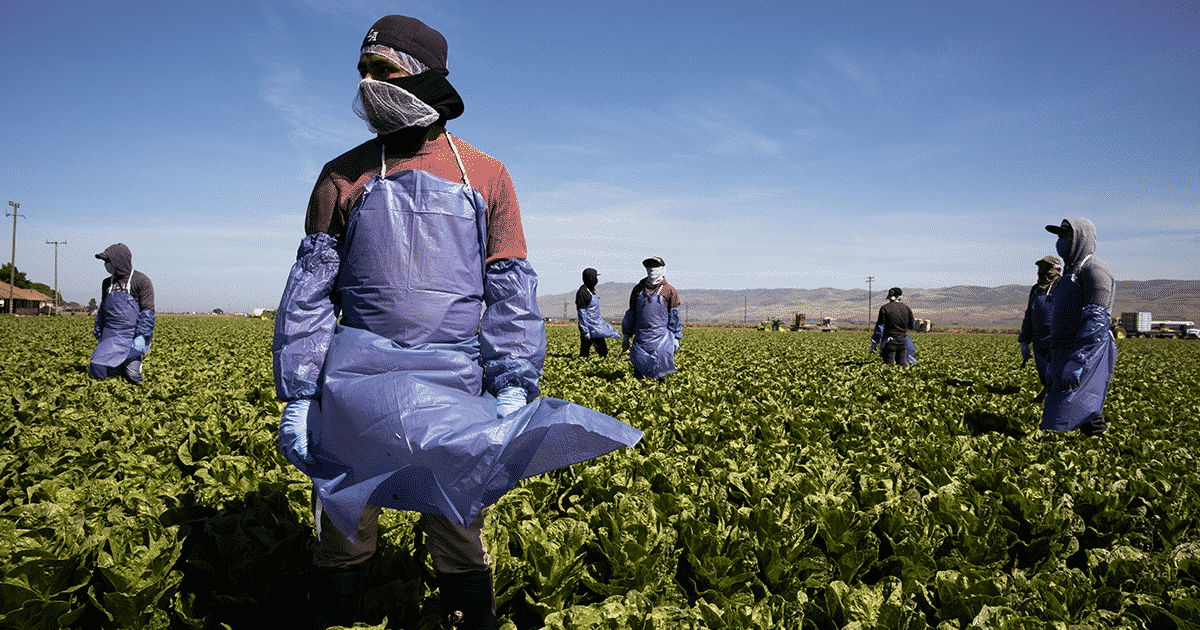
Kevin Vazquez is a staff attorney at the International Brotherhood of Teamsters. He graduated from Harvard Law School in 2023. The opinions he expresses on this blog are his own and should not be attributed to the IBT.
Amazon workers are still voting in Bessemer – and have until the end of the month to cast their ballots – but the historic union campaign already appears to be a harbinger of future organizing efforts. The ripples of the union drive are being felt far beyond Alabama as other viable organizing campaigns emerge in Amazon warehouses nationwide. Amazon, despite its best efforts, which include paying anti-union “consultants” – or, in more traditional parlance, union-busting goons – more than $10,000 a day, has been unable to extinguish the unexpected spark of labor activism, which is rapidly spreading to other warehouses and into other aspects of Amazon’s business. Last month, a Teamsters local announced that it had been recruiting workers to organize Amazon’s Iowa warehouses since November, and Teamsters are also aiming to expand the battle beyond Amazon’s warehouses and into its delivery operations. Moreover, on Saturday, Bloomberg reported that, inspired by the Bessemer campaign, Amazon workers in Baltimore, New Orleans, Portland, Denver, and Southern California are exploring unionization options; labor organizers are using the campaign to establish a foothold in the South – which has historically been inhospitable to organized labor; and the RWDSU said that it heard from more than 1,000 Amazon workers throughout the country.
Although many of these organizing efforts are incipient and will likely be unsuccessful, it is becoming clearer that the Bessemer campaign, regardless of its ultimate outcome, is poised to become a pivotal moment in U.S. labor history that could presage a multi-faceted nationwide campaign to challenge Amazon, one of the largest and most powerful companies in the country. “There are strikes and elections that become historical pivot points,” said Kate Bronfenbrenner, the director of labor education research at Cornell University, quoted in Bloomberg. “This is one of them.”
It is also becoming clear that 2021 is poised to become a pivotal year for the labor movement in general. Beyond the Amazon campaigns, President Biden is the first emphatically pro-union president since Truman, and earlier this month, Democrats in the House passed the PRO Act, which is the largest and most important pro-labor reform in a century – although, without filibuster reform, its outlook in the Senate remains grim. (As some are arguing, however, the Act, while not a traditional “budget” bill, would have a clear budgetary impact and, accordingly, could potentially be passed through the budget reconciliation process, bypassing the filibuster, though this possibility appears remote.) Whether the labor movement will seize the moment and reverse decades of falling union rates and rising inequality remains to be seen.
On Saturday, Reps. Rashida Tlaib, Haley Stevens, and Debbie Dingell, all Michigan Democrats, joined 80 striking Teamsters on the picket line outside a 7 Up warehouse in Redford Township, near Detroit. The strike began on March 11, after failed negotiations regarding a tiered pay system for warehouse workers and drivers at the company, through which workers in the same job are often paid at different rates. The striking workers, following their rejection of the company’s final offer, are demanding that it return to the negotiation table. So far, the strike has been entirely peaceful – there was one nonviolent police incident that involved a man who, according to police, was not employed by the company or hired as part of its security personnel. Tlaib, while present at the picket, used the opportunity to emphasize the importance of the PRO Act, which passed the House earlier this month and is now in the Senate.
On Monday, the Supreme Court will hear arguments in Cedar Point Nursery v. Hassid, a “takings” case that targets a 50-year-old regulation in California permitting union organizers to enter farms and other agricultural worksites for a limited period to organize and speak with farmworkers. The plaintiffs, which represent powerful California agribusinesses, are resurrecting an argument advanced and rejected by the Court in Heart of Atlanta Motel, Inc. v. United States, following the passage of the Civil Rights Act of 1964. In both cases, the plaintiffs’ contention was that permitting the unwanted entrance of others – there, Black patrons; here, labor organizers – onto their property – there, a motel; here, an agricultural worksite – constitutes a “taking” requiring “just compensation” under the Fifth Amendment. Although the Court rejected the argument with a single sentence in 1964, it is far more conservative today, and the outcome is far less predictable.
The outcome of this case has obvious implications for labor organizing, and it could ultimately constitute an important link in the conservative Court’s campaign to undermine unions. Access to employer property is critical for union organizing efforts across the nation, and workplaces are often the principal forum through which organizers are able to communicate with workers. Moreover, as Marina explained for OnLabor earlier this month, it could also dramatically alter the Supreme Court’s approach to property rights. The case could lead to an invalidation of basic federal and state health and safety regulations, which often require that business owners permit the entrance of an unwanted inspector, and have other far-reaching consequences, reshaping the relationship between landowners and government and diminishing the power of the latter to access “private” property for the public good.
In Nigeria, following the U.K. Supreme Court decision that led to Uber’s reclassification of its drivers as employees, entitling them to benefits, drivers under the guidance of the National Union of Professional App-Based Workers, a progressive Nigerian labor union, are filing a class-action lawsuit against Uber and Bolt. The workers are seeking classification as employees, which would entitle them to certain legal rights under Nigeria’s labor laws, and they are also calling for unpaid overtime and holiday pay, pensions, social security, and union recognition. A similar lawsuit was filed in South Africa earlier this month in the wake of the U.K. court decision. The lawsuits, if successful, would be a clear example of the global move against Uber’s classification of its employees as independent contractors. In the United States, however, Uber has won several key victories, and the fight to secure benefits and protections for drivers is far from over.
Finally, as more $1,400 stimulus checks were deposited into bank accounts this weekend, offering vital relief to millions of deeply struggling people, Former Treasury Secretary and hedge fund manager Larry Summers, architect of President Obama’s highly criticized response to the Great Recession in 2009, has graciously warned that this is “the least responsible fiscal macroeconomic policy we’ve had for the last 40 years,” which is “fundamentally driven by intransigence on the Democratic left.” Thank you, Larry Summers.






Daily News & Commentary
Start your day with our roundup of the latest labor developments. See all
February 22
A petition for certiorari in Bivens v. Zep, New York nurses end their historic six-week-strike, and Professor Block argues for just cause protections in New York City.
February 20
An analysis of the Board's decisions since regaining a quorum; 5th Circuit dissent criticizes Wright Line, Thryv.
February 19
Union membership increases slightly; Washington farmworker bill fails to make it out of committee; and unions in Argentina are on strike protesting President Milei’s labor reform bill.
February 18
A ruling against forced labor in CO prisons; business coalition lacks standing to challenge captive audience ban; labor unions to participate in rent strike in MN
February 17
San Francisco teachers’ strike ends; EEOC releases new guidance on telework; NFL must litigate discrimination and retaliation claims.
February 16
BLS releases jobs data; ILO hosts conference on child labor.